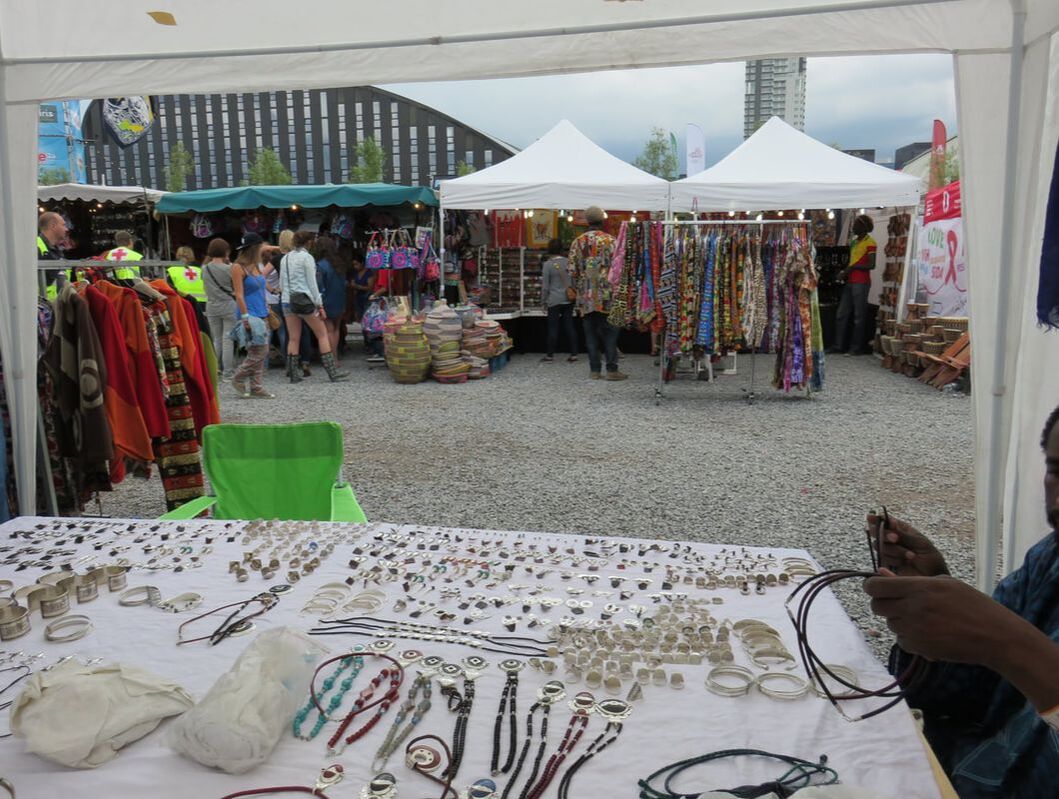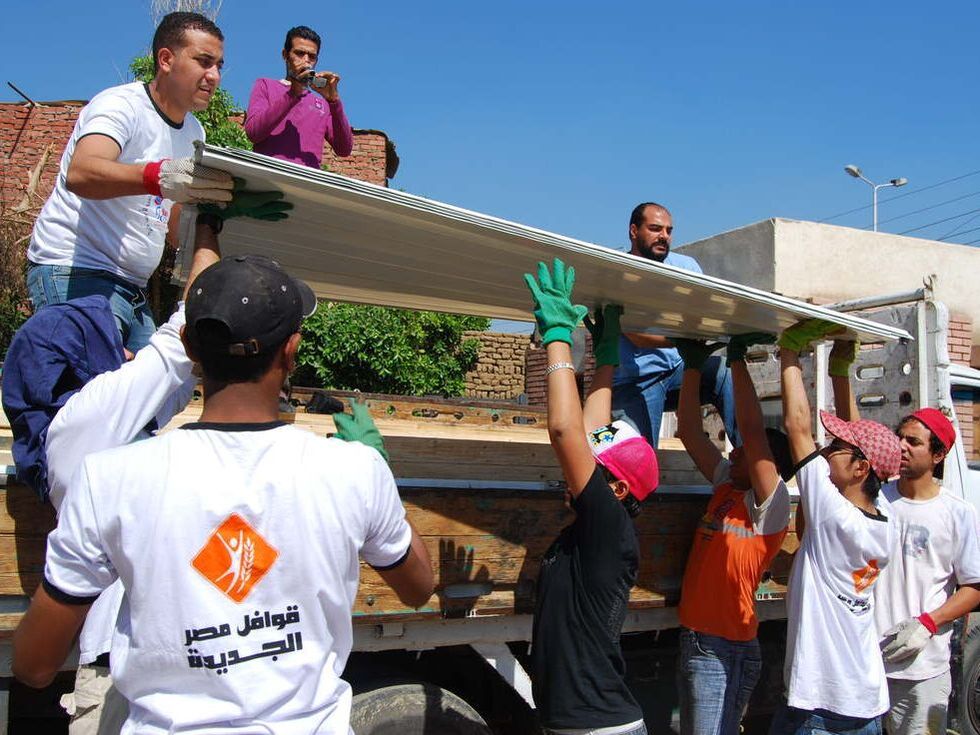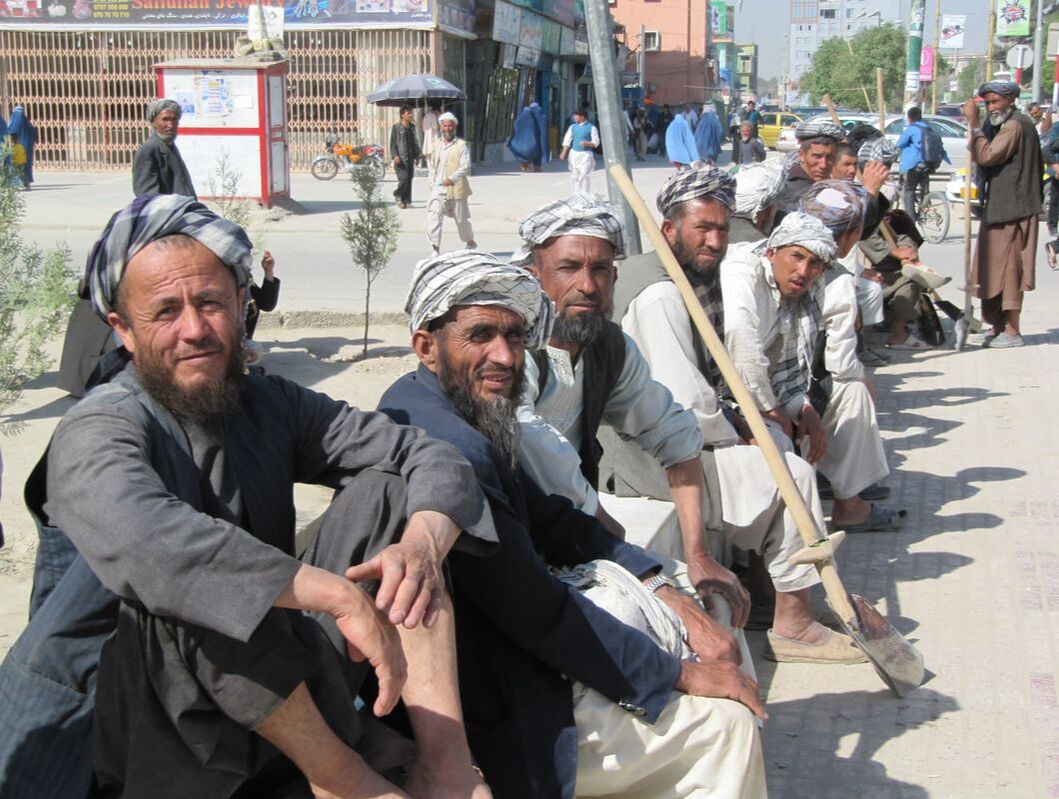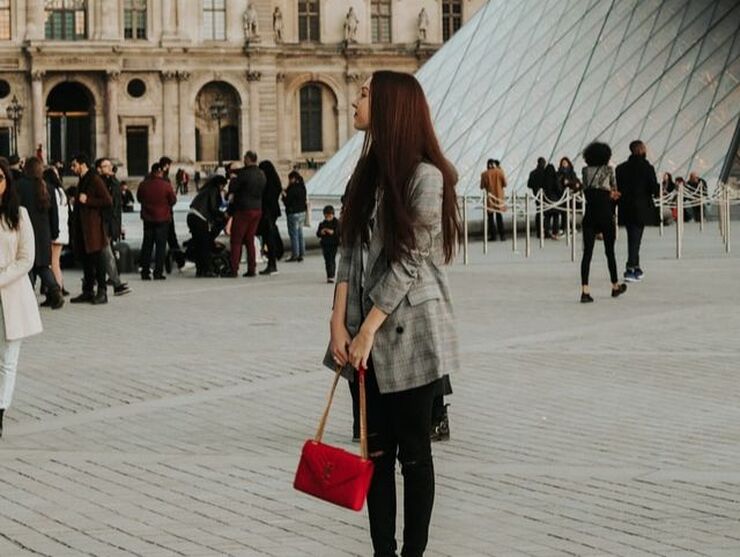|
|
|
Bermo carries my two year old son on one shoulder as we stroll down the main street in Antwerp, the beautiful medieval city in Belgium. My son uses Bermo’s soft turban as a place to rest his head, struggling to keep his eyes open. The photographer that follows the two of them in an attempt to get his best shot is really disturbing in his intensity and he has not even asked if he can take a photo. Bermo, used to being shown such excitement, pretends simply to ignore him. Bermo is not a celebrity as one might expect but a migrant worker from Niger that in his everyday life back home moves between the pastoral area and the city, where he struggles to make a living. Here I suspect that the combination of his clothing and dark skin, as well as the white body of my son, is arousing interest. While this particular event was rather extreme and took place prior to the so-called ‘crisis of migration’ in Europe, I have seen time and again WoDaaBe being perceived as belonging to the slot of the ‘exotic others’.
In my Identities article, ‘Global citizens, exotic others, and unwanted migrants: mobilities in and of Europe’, I focus on those portrayed as exotic to ask larger questions about otherness in Europe in the present. What kinds of bodies are welcomed in Europe that, after all, has for the last few years been characterised by large headlines proclaiming an ‘invasion’ of people from Africa into Europe? These depictions have often intersected with racialised narratives of Muslims and asylum seekers as threats, simultaneously criminalising and reifying these heterogenous categories. My article is based on ethnographic research in Belgium that consisted of brief visits conducted over a long period of time, wherein I participated in the life of WoDaaBe migrant men, as well as in the lives of other migrants from Niger in precarious positions. Some of these individuals I knew going on 20 years, having met them a long time back, while undertaking my two-year long PhD fieldwork in Niger.
0 Comments
The 21st century has witnessed a range of mass movements and street protests around the Arab world. In early 2011, an uprising founded on visions for a more just and free Egypt led to the overthrow of President Hosni Mubarak, while the following years and the election of Field Marshall Abdel Fattah al-Sisi proved that the military regime was far from defeated. Nevertheless, both opposition protests and state arrests continue to influence politics and everyday life in the country. For young people, political events are often formative for their images of what the future holds and what possible selves they imagine. The contemporary context of Egypt thus provides an opportunity to analytically explore the dynamics and intertwinement of personal hopes, utopian aspirations and post-revolutionary nostalgia and disappointment.
In my Identities article, ‘Experimenting with alternative futures in Cairo: young Muslim volunteers between god and the nation’, I examine how the personal hopes of young middle-class Egyptians develop into utopian aspirations for an alternative society, and eventually, how such aspirations are both strengthened and shattered in the aftermath of an uprising. Through ethnographic fieldwork among volunteers in Resala, Egypt’s largest Muslim youth NGO, from 2009 to 2015, I followed some of these young people from their first experiences with Muslim volunteer work through their excitement of the 2011 uprising. and finally to post-revolutionary times where they again renegotiate their orientations towards the future.
As the human misery in Lesbos, Malta and the Mediterranean Ocean hits the world media, a debate has emerged on how to speak about this crisis. Some argue that the public debate and part of the media coverage has become ‘too emotional’. A few voices emphasise the lack of context, including the history of war and oppression in the region from which a majority of the Moira refugees and migrants have travelled in search of safety.
As a media researcher with an international journalist background, having travelled and resided in countries in the Middle East and beyond, it is hard not to agree with those asking for historical context. Far too often, the public debates on asylum seekers and migrants narrow the scope to the nation’s sustainability. Another argument relates to ‘whataboutism’, highlighting the plight of people who are even worse off, such as in Yemen. For academics and other experts alike, it does make sense to approach refugee discourses from a multi-level perspective. It is hard not to see the high number of Afghan refugees in Moria as related to the last two decades of NATO-led intervention, and the hopes that turned to ashes while the Taliban (again) grew stronger.
In the 1930s, the retired British governess Mary O’Neill lived in Florence in the company of her female co-nationals. A close-knit diaspora of English aristocratic intellectuals and bohemians, they sought to spread English cultural traditions to the Italian masses. They tried to help ordinary Italians enjoy Shakespeare and Renaissance art, not only to dream about glamorous cars and other pleasures of the Jazz Age. Mary O’Neill and her friends greatly contributed to the upbringing and the artistic rise of the young Franco Zeffirelli. But did they manage to gain prestige within their Italian community? Known for their poignant wit, those expat women, whom the locals sarcastically called ‘Scorpions’, were, in fact, totally alienated from a wider Florentine community.
Depicted in Zeffirelli’s Tea with Mussolini, this story of cultural resilience finds a lot of resonance with diasporic reality today. In the large volume of studies on diaspora, an issue of concern is that many expats who speak culturally and civically on behalf of their homeland find zero reciprocity within their local community (Nye 2004; Watanabe and McConnell 2008). Why do highly intellectual expats, who seek to morally enrich their host society, often fail to be accepted by their local communities? This question is explored in-depth in our Identities article, ‘Reflections on diaspora and soft power: community building among female US expats in Southern Europe’, which looks at life experiences of highly educated US-national expat women in Italy and Greece from the 1990s to 2015. They all hold degrees from leading US universities. Many of them are married to local men. And all of them seek to spiritually invigorate their local communities by showing them how to take care of the public space, such as to clean streets from litter and set up shelters for stray dogs and cats. They see these as typical ‘North American civic values’ that they are teaching to their ‘unenlightened’ neighbours. |
|
Explore Identities at tandfonline.com/GIDE |
|
The views and opinions expressed on The Identities Blog are solely those of the original blog post authors, and not of the journal, Taylor & Francis Group or the University of Glasgow.




